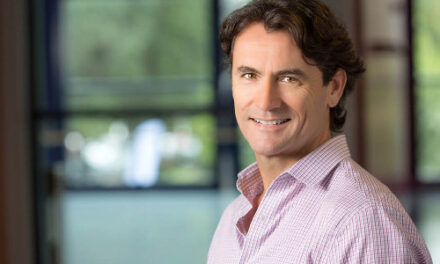The unusual program of contemporary music from the Americas enticed me to travel to the western bounds of my usual reviewing range – downtown Winston-Salem. My previous outing to Winston-Salem had taken me to a contemporary program presented in a bar. The Carolina Summer Music Festival made use of the ample back room of Krankies Coffee, a combination coffee-roaster/vendor/café/bar/art gallery/entertainment venue situated at 211 E. 3rd St., immediately east of the tracks (shortly before the music began – latish – a freight train blew its whistle, and headed up hill past Krankies – just as well that the music had not started yet). Krankies is located in an old industrial building, just barely updated for its new use, with a haphazard collection of seats for its musical audience, which numbered around 70.
The quartet presenting the program was local and consisted of Oskar Espina Ruiz, clarinet; Jacqui Carrasco, Fabián López, violins; Scott Rawls, viola; Alexander Ezerman, violoncello. Carrasco is active at Wake Forest University and the remaining strings are at UNC Greensboro (where they are three-quarters of the McIver Quartet). Not surprisingly the four played with considerable energy and excellent ensemble.
Opening the program was a short work by Paquito D’Rivera (b. 1948), who became known in the USA (after emigrating from Cuba) as a talented jazz saxophonist, but who was the winner of two Latin Grammy awards in 2011 for his Panamericana Suite (best Latin Jazz album, and best contemporary classical composition, a neat trick!). “Wapango” was a relatively brief and accessible work based on a Mexican dance, with contrasting duple and triple rhythms. It was followed by the “Medley from A Future of Tango” by Alejandro Rutty, from Buenos Aires, but based in Greensboro at UNCG. The work is a condensation of material from his concertante work in three movements for saxophone quartet and orchestra. The arrangement was cogent and very idiomatically scored for the string quartet, with an impressive breadth of expression within its six-minute span. Rutty’s idiom is modern but clearly drawing on the drama and pathos of the tango. This deserves to be broadly incorporated into the string quartet repertoire.
Next up were four movements from the Leyendas (“Legends”) by Gabriela Lena Frank, the American/Jewish/Peruvian composer based in the San Francisco area (the original work has six movements). When I heard this in 2008 as performed by the Chiara, it seemed weak tea in contrast to its context (Bartók); as played by Carrasco and compadres it was in a more appropriate setting, where one could appreciate its spare use of non-Western materials.
The evening closed with an arrangement for clarinet and quartet of the “Prelude and Merengue” by D’Rivera, another fine example of the composer’s stance at the edge of classical and popular. Ruiz was a persuasive presence on clarinet, with a full, well-tuned sound, and the whole group cooked, with some nice counterpoint closing the prelude, and fine unison playing (and a stomp!) closing the 5/8 merengue.
This program was a very enjoyable musical moment for a summer Wednesday. My only complaint (remembering the old joke): delicious food, but such small portions! Such a program should have at least an hour or more of music – we heard only 45 minutes, which is barely enough to reward those who might be moved to drive in from out of town.











